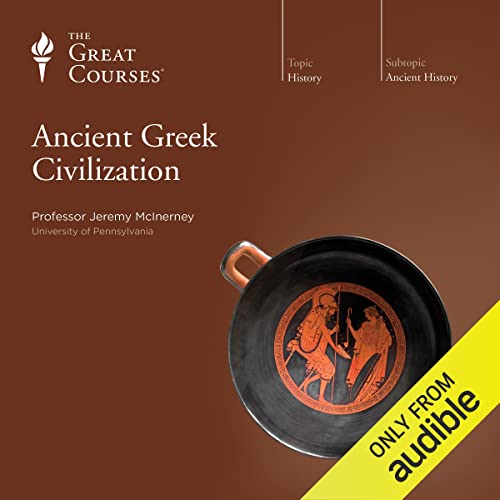
by Jeremy McInerney
Lecture in English, 12 hours — category ancient history
Narrated by Jeremy McInerney PhD University of California at Berkeley — published by The Great Courses in 2013
I have not read this book yet.
Description from the publisher:
Clearly, the Greeks are a source of much that we esteem in our own culture: democracy, philosophy, tragedy, epic and lyric poetry, history-writing, our aesthetic sensibilities, ideals of athletic competition, and more. But what is it about Hellenic culture that has made generations of influential scholars and writers view it as the essential starting point for understanding the art and reflection that define the West? This series of 24 lectures by an accomplished Greek scholar and teacher traces the complex web of links between the present and its Mediterranean origins, taking you from the Late Bronze Age up to the time of Philip II of Macedon and his son Alexander the Great. It's an intellectual journey that lets you see ancient Greek civilization in the light shed by the newest and best research and criticism, expanding your understanding of history, literature, art, philosophy, religion, and more.
With a special focus on the two crucial centuries from 600-400 B.C.-the era of the Persian and Peloponnesian wars and of classical Athens as described in the histories of Herodotus and Thucydides and the philosophic dialogues of Plato-you'll come to understand how the uniquely "Greek" identity was forged, and how it gave root to so much of what we consider vital about our own present day. Just as important, you'll learn how the differences between our own modern values and beliefs and those of the Hellenic world-including slavery and the exclusion of women from public life-do not imply a lack of relevance to our own times but can instead teach us as just much as our affinities.